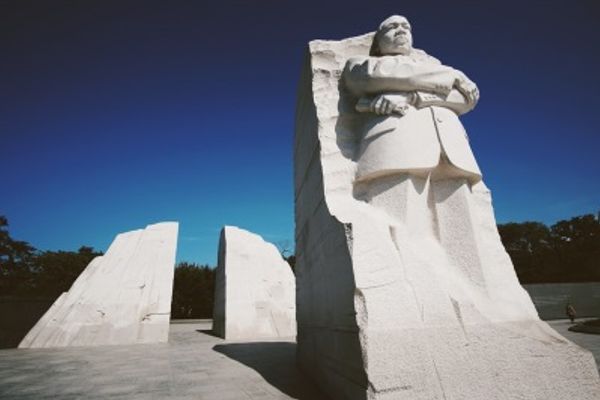To commemorate the life and legacy of Dr. Martin Luther King, Jr. (MLK), Furman University’s Center for Inclusive Communities organized several opportunities for the Furman community over the past week. On Jan. 15, Furman University hosted the annual MLK Community Breakfast. This event, which is normally an on-campus celebration, was hosted virtually to abide by campus COVID-19 health and safety guidelines. The virtual breakfast featured remarks by President Elizabeth Davis, Rev. Rimes McElveen, Nagiah Ferrell ‘23 and Jonathan Kabukundimana ‘16.
President Elizabeth Davis initiated the MLK Community Breakfast by thanking members of the community for attending, elaborating on Furman’s efforts to promote diversity and inclusion, and reflecting on Dr. Martin Luther King, Jr.’s legacy. Davis said, “At Furman, we embrace diversity and inclusion as embodied by our University practices” Davis described several of these efforts, from the creation of an Ad-Hoc Committee on Black Life at Furman to the Joseph Vaughn Plaza.
Next, Rev. Rimes McElveen ‘96, Executive Director and Campus Minister with Mere Christianity Forum, offered the invocation for the event. McElveen described his role as “a huge honor,” and expressed his appreciation of “Furman’s commitment to commemorating Martin Luther King, Jr.’s contribution to the nonviolent struggle for civil and human rights.” McElveen encouraged attendees to think critically, describing this week’s events as opportunity for “serious reflection, exploration, and addressing of the systemic nature of persistent race-based inequity in American society.” He applauded the public recognition of remarkable individuals and organizations, such as Jonathan Kabukundimana ‘16 and Equal Justice Initiative (EJI), that are addressing systemic injustice and taking steps towards a better future. Through his role as one of Furman’s Campus Ministers, McElveen said that he is “excited by the ways our students and others are animating the work for a more just and equitable Furman community as an expression of their faith in the love and grace of God.”
Nagiah Ferrell ‘23 offered the introduction for the featured speaker, Jonathan Kabukundimana ‘16. Ferrell shared her excitement in participating in an event to honor MLK. She said, “It truly meant a lot to be a representative for black students on campus and pay homage to such an amazing figure, not only in the black community, but to America.” She expressed her admiration for Kabukundimana and his work outside of Furman addressing community injustices. Ferrell hopes that attendees will take this program to heart and continue shining light on injustices in and beyond our campus. She said, “Furman is already doing a good job to identify the University’s complicated history with racism and discrimination. We are not all the way where we should be, but I do think Furman is moving in the right direction.”
Jonathan Kabukundimana ‘16 serves as a program manager of the Equal Justice Initiative (EJI), where he seeks to encourage others to recognize the roots of racial injustice that remain pervasive in the criminal justice system in the U.S. today. During the MLK Community Breakfast, Kabukundimana called attendees to consider the true message of MLK. “Every year Dr. King is distorted, reimaged, and repacked into something the state can continue to use,” Kabukundimana warned. He went on to assert that MLK was not seeking complacency, but rather, a restructure of society through a transformation of morals, which occur through interpersonal relationships that promote solidarity against injustice. “For the U.S. to be on the right side of history, it must undergo a radical revolution of values,” Kabukundimana explained, drawing further parallels to MLK’s assertion that our society must shift its priorities from things to people. Kabukundimana closed with a message of hope, quoting MLK’s speech against the injustices of the war to Riverside Church in New York City on Apr. 4, 1967: “Perhaps a new spirit is rising among us. If it is, let us trace its movement well and pray that our own inner being may be sensitive to its guidance, for we are deeply in need of a new way beyond the darkness that seems so close around us.”
The MLK Community Breakfast, in addition to another program by the CIC to address racial inequalities related to COVID-19, both encourage the Furman community to think critically about the messages of MLK and other champions for civil rights. Additional events to promote diversity and inclusion will take place this semester, including events for Black History Month, events by Furman Justice Forum, a delayed Joseph Vaughn celebration, and more.
